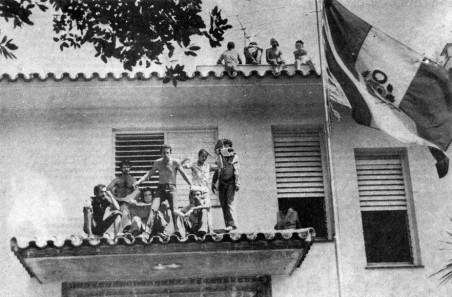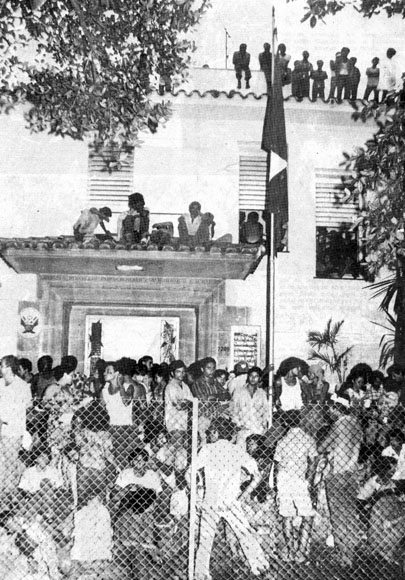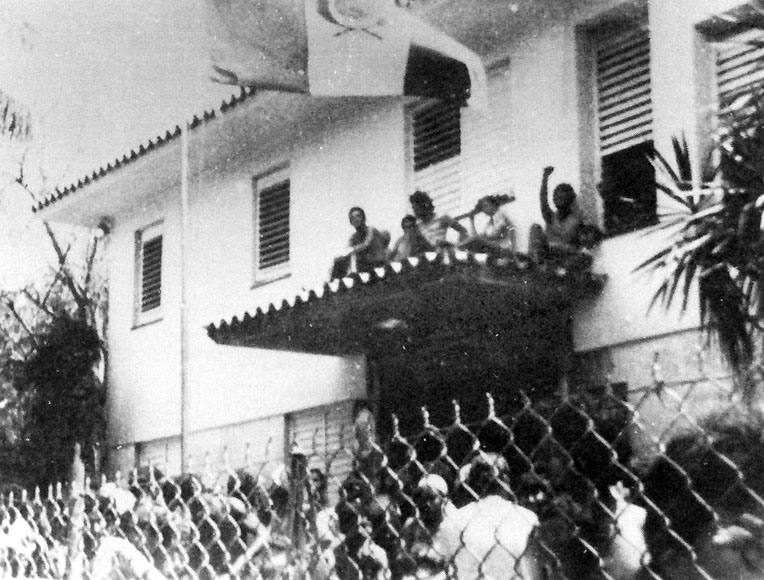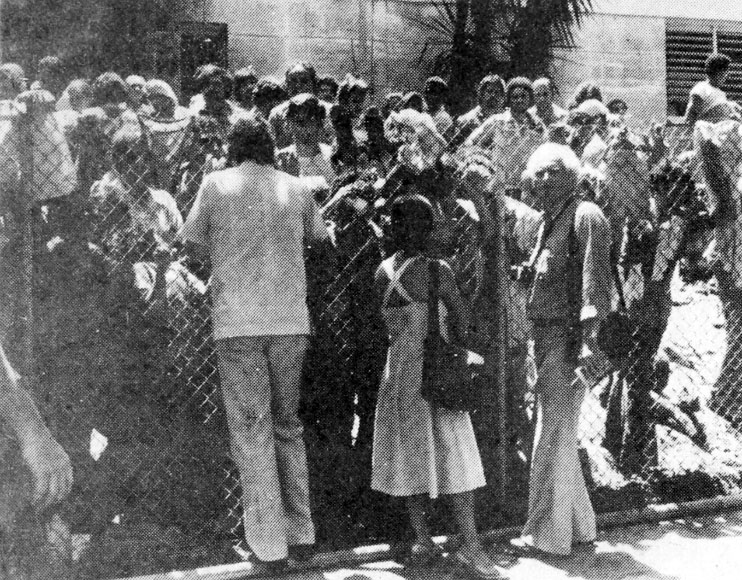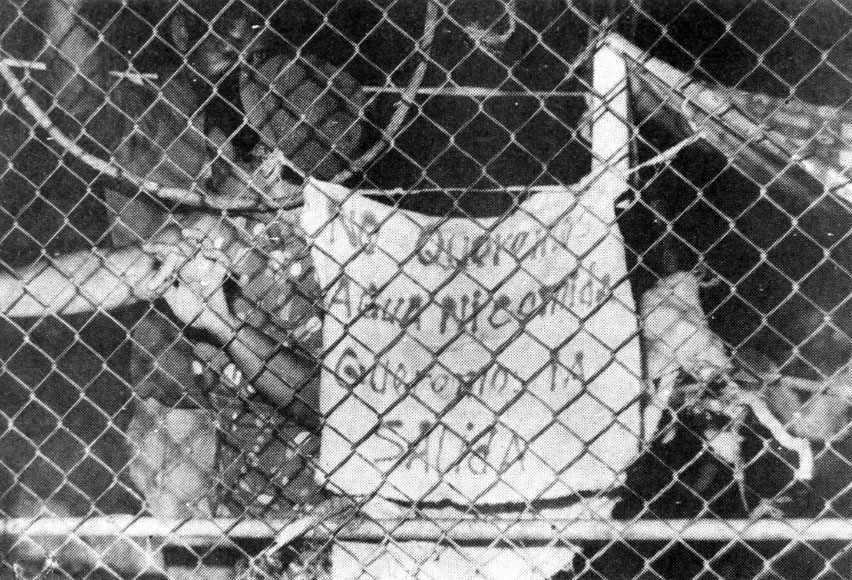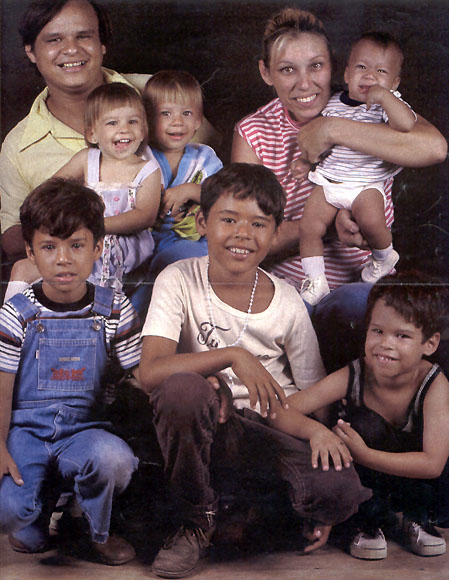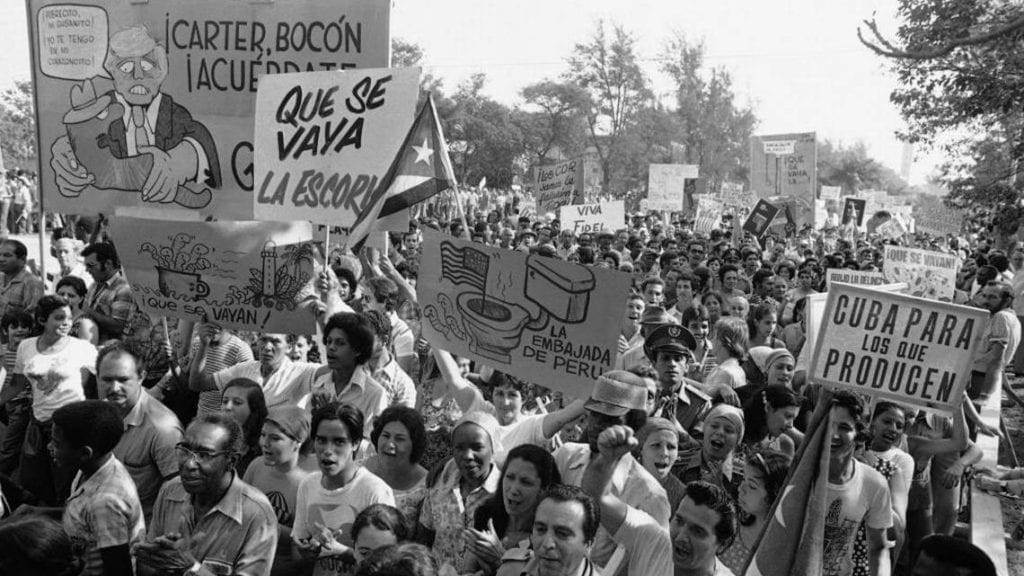❝There were people with drums doing a conga line and chanting, 'Going to the embassy, going to the embassy'; it was a collective craziness.Their action precipitated one of the largest exoduses in modern history."
-Historian Enrique Lopez recalled in a telephone interview in Havana (Juan O. Tamayo, Castro's blunder led to crisis, The Miami Herald, 23 April 2000)
